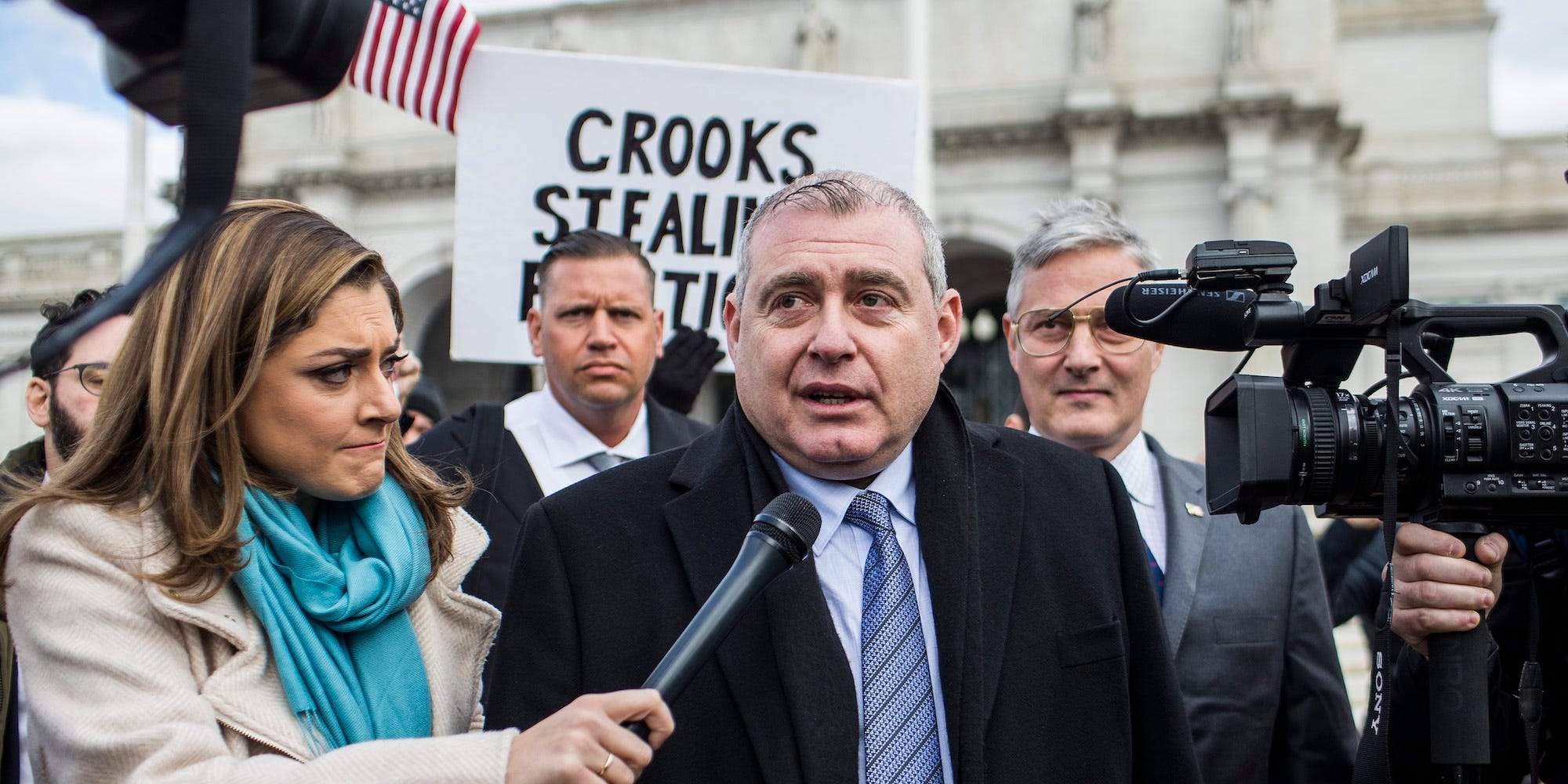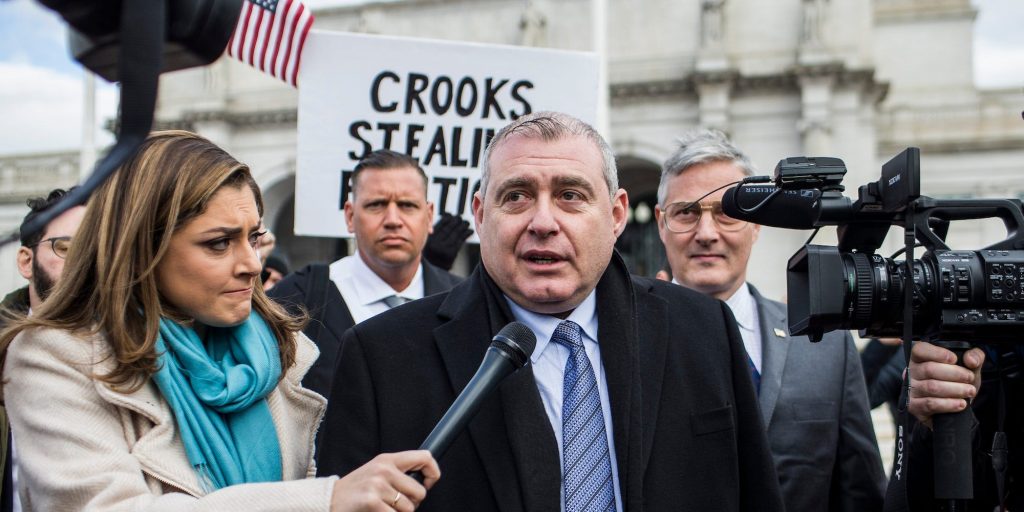
Zach Gibson/Getty Images
- Currently, the FEC relies on candidates and committees to attest that they haven't accepted foreign money.
- The agency's inspector general said that's "insufficient oversight" and that "poses a national security risk."
- "The risk of foreign electoral influence is real and not hypothetical," the report also said.
A report by the Federal Election Commission's internal watchdog has found that the body's current system of handling potential foreign contributions – largely relying on candidates and political action committees to certify that they haven't received foreign money – "poses a national security risk and provides insufficient oversight of possible illegal foreign donations."
That finding was included in the FEC Office of the Inspector General's annual report on management and performance challenges at the agency. While "potential foreign electoral influence" was briefly mentioned in last year's report, this year the watchdog dedicated an entire section to the issue.
The report also lists the ongoing growth in campaign spending, remote work during the COVID-19 pandemic, issues with senior leadership staffing, and cybersecurity among the biggest challenges that the nation's top election oversight agency faces.
"The FEC's practice of relying on filers' self-certifications concerning potential foreign contributions poses a national security risk and provides insufficient oversight of possible illegal foreign donations," the report said. "Indeed, numerous recent cases highlight the risk of unlawful foreign influence in U.S. elections."
In recent years, several individuals have been convicted of pouring foreign money into American campaigns. Lev Parnas, a Ukrainian-born businessman and associate of Rudy Giuliani, was recently convicted of funneling Russian money into American campaigns.
Separately, the FEC recently affirmed that foreign nationals could contribute to ballot measure campaigns, an apparent loophole in campaign finance law that lawmakers are now seeking to shut.
The OIG's report cited a recent investigation into the matter, which also recommended the agency "update" its practices to better identify unlawful foreign donations. "However, we recognize that the FEC's resources are significantly constrained," the report noted.
The report further said that the agency's funding has only increased a minuscule amount in the last 13 years, which has ramifications for how the body monitors foreign money. "The increased demand on the agency without additional funding to provide resources to the FEC poses a challenge for the agency to identify and regulate unlawful foreign contributions," the report said.
Central to the issue when it comes to foreign money, according to the watchdog, is that the FEC must ultimately rely on the "good faith" of various entities that file reports with the commission.
"The FEC identifies many potential foreign national donations based on the reported addresses of donors, but generally defers to a committee's self-certification that it verified the U.S. citizenship of those donors," the report said. "However, that practice does not appear to be memorialized in policy and relies heavily on the good faith and due diligence of filers."
The report included a response from the commission, which stated that cases involving potential illegal foreign contributions are prioritized above others. The FEC also said it has "modified its case management software" to better address the issue.
The commission also argued that current regulations to prevent foreign money from flowing into campaigns are "extensive," noting that "all committee treasurers are required by regulation to examine all contributions received for evidence of illegality."
The FEC's rebuttal also noted that requiring the disclosure of additional information would "very likely require a legislative change, which of course is solely the purview of Congress."
